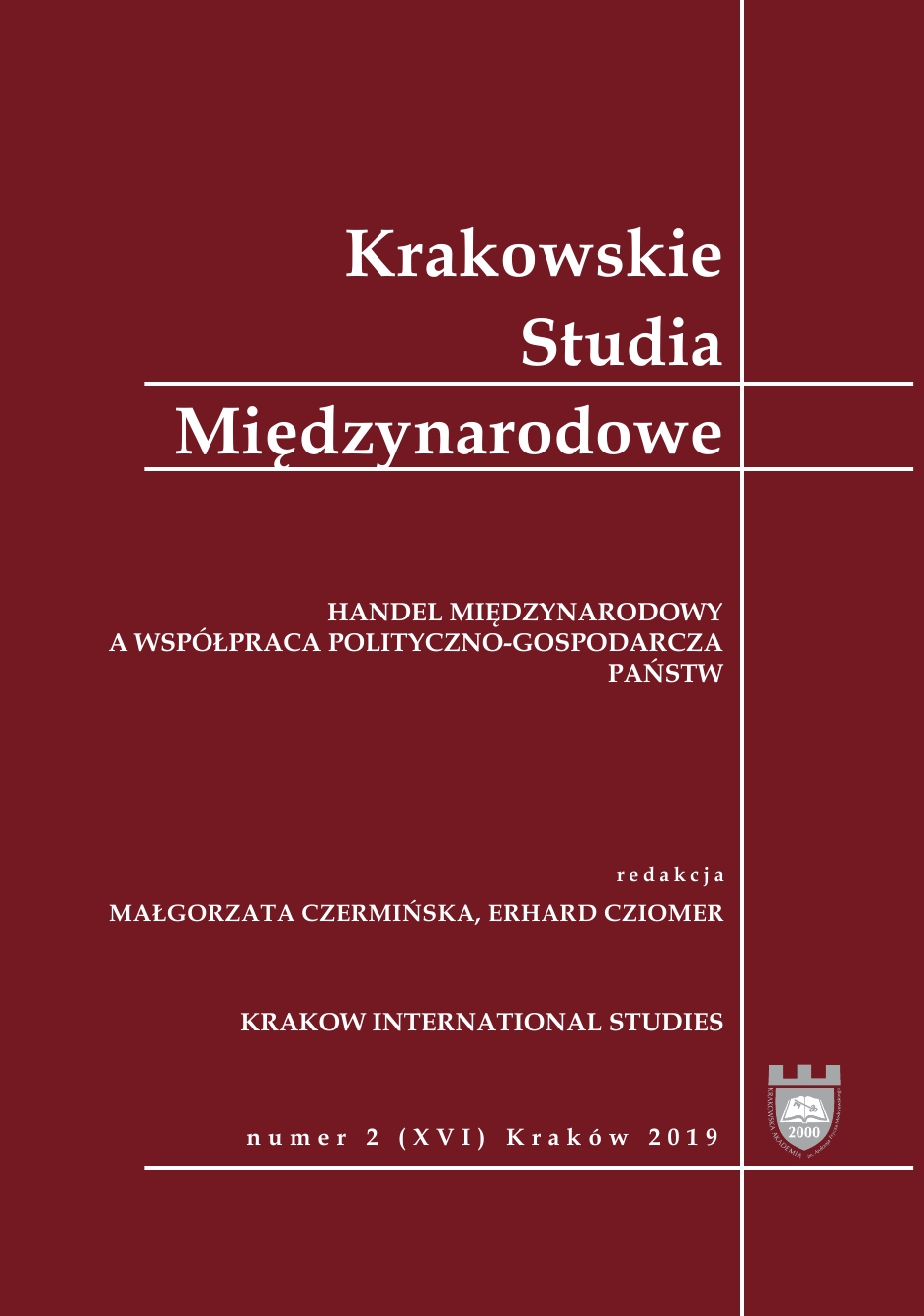Umowy o wolnym handlu nowej generacji i ich znaczenie dla relacji handlowych Unii Europejskiej z państwami trzecimi – przypadek Korei Południowej
New-Generation Free Trade Agreements and Their Relevance for the Trade Relations of the European Union with Third Countries – the Case of South Korea
Author(s): Małgorzata CzermińskaSubject(s): Economy, International Law, International relations/trade, Law on Economics, EU-Approach / EU-Accession / EU-Development
Published by: Oficyna Wydawnicza AFM Uniwersytetu Andrzeja Frycza Modrzewskiego w Krakowie
Keywords: new-generation free trade agreements; free trade area; the European Union; South Korea; customs duty;
Summary/Abstract: The selection of potential trading partners in new-generation free trade agreements is primarily is above all about economic criteria (market potential, economic growth). This was emphasized in the new strategy of the European Union’s common trade policy in 2006. The first trade agreement of this type which was concluded by the European Union with South Korea fits well into this scheme. Korea is a dynamically developing Asian country, at the same time it is an important trade partner of the EU. The purpose of the article is to show the genesis, main provisions and meaning of new-generation trade agreements which were concluded by the European Union with third countries. In empirical research, the first such agreement – with South Korea – was used. Due to the limited volume of the article, the analysis of the significance of the agreement for EU-South Korean trade relations was mainly limited to trade in goods.
Journal: Krakowskie Studia Międzynarodowe
- Issue Year: XVI/2019
- Issue No: 2
- Page Range: 23-37
- Page Count: 16
- Language: Polish

